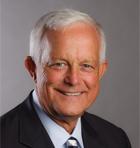
Last year the column entitled Primary Colors provided a framework for how to think about career choices. The main thesis of the piece was that there were three broad pathways to choose between, and the fundamental choice was deciding which one appealed to you. These pathways were described as operator with CEO being the ultimate job; advisor with partner owner being the top; and investor with partner, portfolio manager, or owner being the pinnacle. Many students found this structure helpful, but based on many subsequent conversations it became clear there is an appetite for more granularity. The questions mainly centered around a desire to land in a spot that provided the optimal launch point for rapid and fulfilling career progression. Much of the dialogue centered around how to be best positioned to be noticed, mentored, build a support network, or engage in work that might put the graduate frequently in contact with C-suite members. While there are few absolutes, there is a way to simplify and bring clarity to this first job choice process on the assumption you have picked which of the three lanes among either operator, advisor, or investor that most appeals to you.
The big ideas are fairly easy to state. Pick a good company, get a job close to the customer or product, do a good job and live in a place that is good for you. If you do all this, you will be off to a good start; and create opportunities for yourself, develop strong institutional support, and have a chance to develop a balanced and fulfilling life. All this seems easy to say, but how can you do it? The single most important decision is to pick the right company or firm to join. If you miss on this one, it will be very hard over time to sustain your best performance, grow, and be happy. In fact, picking the right company or firm for you overwhelms the first job in importance. Students have the hardest time embracing this reality. Perhaps it goes back to the high school days when the world told you that the college you pick is destiny. The first job is not remotely destiny, since you probably will not be in it for more than twenty-four months.
Let’s bear down on the first employer choice. There are several revealing questions you should consider. Do I strongly identify with the product or service and why? Do I respect and trust the leadership? Does the firm have a good reputation and prospects? Do I understand and support the values of the firm? Is there enough growth in firm size and job growth to provide opportunity if I do well? You should be able to fairly directly develop answers to most of the questions with one or two exceptions. The point is to think deeply about each question. While possible, it is unlikely each firm element will be perfect; however, a more negative than positive answer to any of the questions should be a knockout. The two questions that perhaps are more subtle and therefore harder to figure out are your identification with the products or services and firm values. You need to be deeply committed to what the firm does or it will be at best a way station. If the firm only has a nice reputation, feels good to identify with at the party, pays well, and you think you can get promoted quickly that will not be enough. Think hard about this. Only you will know the answer. The even more difficult to answer questions are the real values experienced day to day. Be suspicious of stated values and feel good messages. Dig deeper. Ask questions and probe. Nowhere is perfect and few will readily out the imperfections. Develop some questions to help understand. What kind of people best fit here? What do employee surveys say about what people like most and least? What happens if an objective is missed? Beyond the obvious, what does it take to earn a place on the team and succeed? What  is important here that might not be apparent to the newcomer?
is important here that might not be apparent to the newcomer?
Now on to the first job. My strongest advice is to get close to the product or customer. The path to the top demands in virtually every organization that you demonstrate competence and leadership in bigger and bigger roles to help the firm achieve results. Results are not best achieved by advising, keeping score, or analyzing; but by delivering in a context where there is close to an unambiguous way to measure success. Some students say they did not come to HBS to do “operations things”, and seek a “higher” perch. If you take this often misguided path, get close to the customer or product ASAP or you will stall out or be pigeon-holed as a career staffer. Why is this the toughest reality for our students to hear? Do we not spend twenty months at HBS thinking about larger concepts, analyzing problems often from a CEO perspective, seemingly daily being exposed to significant leaders, meeting very successful alumni and not infrequently being told how special we are? No wonder the idea of going to the front line for many seems a downer. It is not. This is where you can build a foundation of experience and expertise to last a career. Be a product or marketing manager; join a sales team; work in a factory; manage suppliers; be on an investing team; be responsible for portfolio companies and the list goes on. Your objective should be to learn and prove yourself, with the objective to manage and lead as soon as you are ready.
Finally, what does ‘‘do a good job’’ mean? The manifestations of doing a good job are easy to describe. Earn a reputation for putting the company and the team above your ambition. Failure to do this is the single most consistent criticism of recent MBA’s and HBS MBA’s in particular. Be a trusted and respected team member and someone your boss can count on to get the job done; ask for help intelligently and in a timely way if insurmountable obstacles loom, represent the boss and company well and be someone the boss hears good things about from your seniors, peers, and subordinates. Finally, be someone who wants to learn and grow in all respects. That includes the industry, the company, your job, and most importantly yourself. Most of us have inadequate self-knowledge and figuring out your gaps constructively, non-defensively, and with a bias for improvement will be a huge benefit to you and your career. HR can help in this difficult but vital task. The last thought is where you live. This is particularly true for two career couples. Be sure the place you live has ample room professionally for you both. Commuter relationships can work, but over time the odds are against it in my experience. Hopefully, you will have or develop interests and friends apart from work so be sure you can find enough on that front, too. So, right company first, do a good job second, and first job last with location in the mix too. Do not overthink it!
The last thought is where you live. This is particularly true for two career couples. Be sure the place you live has ample room professionally for you both. Commuter relationships can work, but over time the odds are against it in my experience. Hopefully, you will have or develop interests and friends apart from work so be sure you can find enough on that front, too. So, right company first, do a good job second, and first job last with location in the mix too. Do not overthink it!
Harvard Business School Professor Kevin Sharer joined the HBS Strategy unit in the fall of 2012. Before HBS, he was CEO of Amgen for twelve years and before that Amgen’s President for eight. He has served on the boards of directors of Chevron and Northrop Grumman and is currently on the board of Allied Minds. For a decade he was Chairman of the board of the Los Angeles County Museum of Natural History. Professor Sharer is a Naval Academy graduate and has master’s degrees in aeronautical engineering and business.



